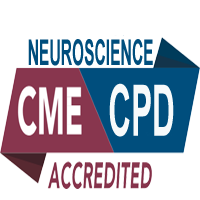
Mohsin Raza
Baqiyatallah University of Medical Sciences, Iran
Title: Differences in maternal and paternal education and their impact on the QOL and general health of children with epilepsy - A study from Iran
Biography
Biography: Mohsin Raza
Abstract
Proper parental care is an important aspect of the lives of children with epilepsy. The impact of parental education on the Quality of Life (QOL) of these patients is an understudied topic, especially in developing countries. We investigated the QOL and general health (GH) of children with epilepsy presenting at the pediatric neurology clinic at Baqiyatallah Hospital and a private clinic. The QOL in Childhood Epilepsy (QOLCE) questionnaire, that covers physical activity, well-being, cognition, behavior, social activity, overall QOL, and GH, was used for interviewing parents. A total of 106 patients (m=61, 57.5% and f=45, 42.5%; 5–17 years, mean: 10.31±2.91) participated in the study. The maternal education level had a significant impact on the overall QOL (high school: 3.02 ± 0.85 vs. B.Sc.: 3.67 ± 0.61, p b 0.05) and GH (high school: 2.81 ± 0.79 vs. B.Sc.: 3.8 ± 0.94, p b 0.05) of male patients, while paternal education had no significant effect. Multiple linear regression showed that the maternal education level had an independently significant association with the physical activity of the patients (p = 0.02, CI: 1.4–6.25), while the paternal education level had with the well-being (p=0.02, CI: 0.43–5.36). Additionally, the maternal education level (high school vs. B.Sc.) had a significant effect on physical activity, well-being, cognition, and behavior for all of the patients (p<0.05), while the paternal education level had no significant impact. We conclude that maternal education, in particular, plays a significant role in GH and the overall QOL of male patients.

